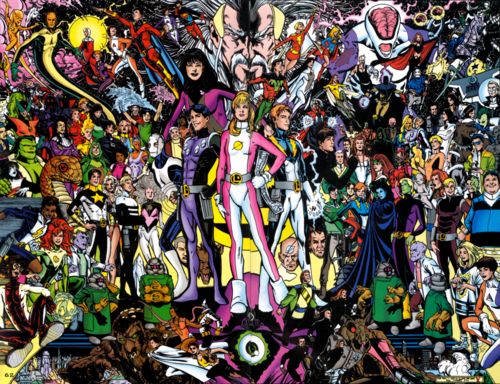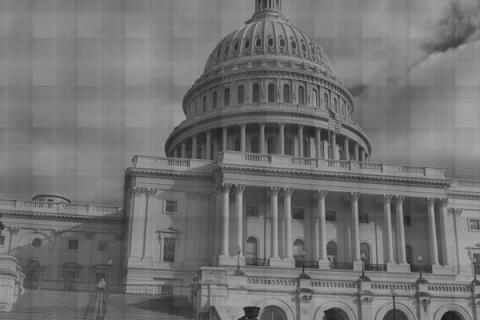Comic Con roars into San Diego this week for a three day fantasy, comic, video game and cinema bonanza. The famous annual conference dedicated to anything geek will run from Thursday, July 12th through Sunday, July 15th. The conference is expecting 123,000 attendees and 1,000 exhibitors.
In the spirit of the festivities, a look into the political themes and tones found in the most successful comic book plots seemed natural.
Since their creation, comic books and superhero movies have centered around politics. Many argue that this is because comics must stay relevant to be popular. A prime example is the first mainstream popular superhero, Superman.
DC Comic's Superman was first published in “Action Comics #1” on April 18, 1938. Superman started off as a character who fought crime, which is arguably a take on the late 1930’s corruption and mafia control, in an era of Al Capone. Superman evolved throughout World War II and began selling war bonds. In the 1950s, Superman questioned technological threats and began an intellectual battle trying to fight Lex Luthor and Braniac. In the 1970’s, as commentary to the Ayatollah terrorism in Iran, he took his crime fighting to an international level, even joining the CIA under President Reagan’s request. If Superman were to be classified as a political party figure, he would be a moderate Republican.
His slightly lefter Marvel counterpart, is often classified as a Truman Democrat. Captain America was first printed in 1941 but most Americans are familiar with him from recent blockbusters. He fought against the Nazis in World War II and then against the Russians during the Cold War. He went on to form the Avengers together with Iron Man, Thor and the Hulk. Together, similar to DC's Justice League, they would fight crime both domestically and on the international level.
Lately, however, Captain America has shifted from war propaganda to a more political commentary, using examples of Tea Party riots and conservative protesters in the books. Predictably it upset the vocal right wing, with Fox News claiming writers of Captain America, " patriotic Americans into your newest super villains." This new technique has shifted comic books from a universal favorite, to perhaps something only fans of a specific political party can enjoy.V for Vendetta and the Watchmen, two of Alan Moore’s classics, also exemplify strong political references and how they divide followers. V for Vendetta set in an imagined future in the United Kingdom where a totalitarian government rules. A mysterious masked revolutionary who calls himself "V" works to destroy the oppressive rulers. The Watchmen takes place in an alternate universe where the Second Amendment was repealed and former President Nixon is serving his fifth term. Moore is not subtle about the way his graphic novels propagate anarchist societies.
"Anarchy is a romance. It's clearly the best way and the only morally sensible way to run the world," said Moore. "Everyone should be the masters of their own destinies. Everyone should be their own leader."
A DC superhero who many argue is the embodiment of an Independent, is Batman.
Batman, though working with Superman and other in the Justice League, rarely leaves his home of Gotham City (said to be a mix between mid-to-late 1900s New York, Detroit and Camden, New Jersey). Granted both in the comic books and in the real cities the comics were based off of, crime was overflowing and there was little reason for him to leave. The point is Batman focused on domestic politics, reducing big government and the United States' role in international politics, and left the world saving up to the other members of his crew.
Batman fandom goes beyond Comic Con and all the way to Congress. Senator Patrick Leahy of Vermont will be appearing in a cameo for the second time in the upcoming The Dark Knight Rises".
Leahy, a lifelong Batman fan, said he admired Batman because he “has no super powers...He had to use his own brains and his own knowledge. He could have had an entirely different life. As a billionaire, he could have done anything."
Bruce Wayne, Batman's alter ego is simply a billionaire who uses his money for good. Sounds a bit like the 99%...life imitating art?
And what about recent cases of high-profile vigilantes, since Batman is essentially one himself?
George Zimmerman continues to make national headlines in the aftermath of the Trayvon Martin incident. On February 26th, George Zimmerman fatally shot an unarmed African American teenager. Zimmerman, 28, was the designated neighborhood watch coordinator for The Retreat at Twin Lakes, the gated community in Florida where the shooting took place.
Another group of famous vigilantes is the Minutemen, a multiracial and controversial group based in California who patrol the border for illegal immigrants.
Seattle is the home for new vigilantes, this time a la Kick-Ass, a 2010 movie featuring a teenager who dresses up as a superhero and fights crime in the real world. Urban Avenger, Mr. Xtreme, Pitch Black, Knight Owl, Ghost, and Phoenix Jones are some of the real life people living in Seattle who dress up in home made superhero outfits and fight crime. They've chased car thieves, broke up bar fights and even changed the tires of stranded strangers. Jones says they break up 2-3 violent acts a night.
While the perks to being a superhero are clearly evident, the negatives are pretty serious. Phoenix Jones, the most famous and beloved of the pack of 6, ended up in the hospital in last August. Some citizens of Seattle are also starting to turn against their local superheroes, just like in the plots of Batman and Spiderman.
It seems superhero comics will continue to draw inspiration from the real life domestic and international political climate. Wonder wonders if an epic partisan battle is in the works for their famed pages?

